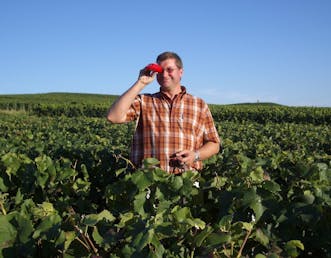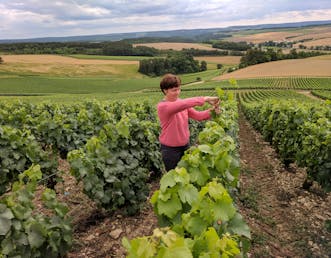Champagne is an 'Appellation d'Origine Contrôlée', which is particularly well regulated. From the terroir to the grape variety (Pinot Noir, Meunier, and Chardonnay) and the winemaking method, making champagne is highly regulated!
The vineyards of Champagne extend over several departments (Aisne, Marne and Aube) and you are warmly invited to take a walk there, from the Montagne de Reims to the Côtes des Blancs, for an exciting wine route!
At Les Grappes, we will introduce you to the champagnes of harvesting winegrowers producing real nuggets that have nothing to envy to the more famous Champagne Houses.
Most champagnes are non vintage, it means that they are made from a blend of grapes from several years. Conversely, a vintage champagne is the expression of a particularly good year, and they age better.
A distinction is made between grand cru and premier cru champagne.
The dosage is a crucial step in the making of champagne, it is the addition of the dosage liqueur which will transform the champagne into an extra-brut, brut, extra dry, dry, semi-dry or sweet champagne, depending on the quantity of this liqueur added.
On Les Grappes, you can also find organic champagnes.
Buying champagne is more complicated than it sounds. Many customers make the mistake of being tempted by the names of certain brands or by an attractive container and label. Instead, know how to decipher the information on the labels to make a successful champagne purchase.


